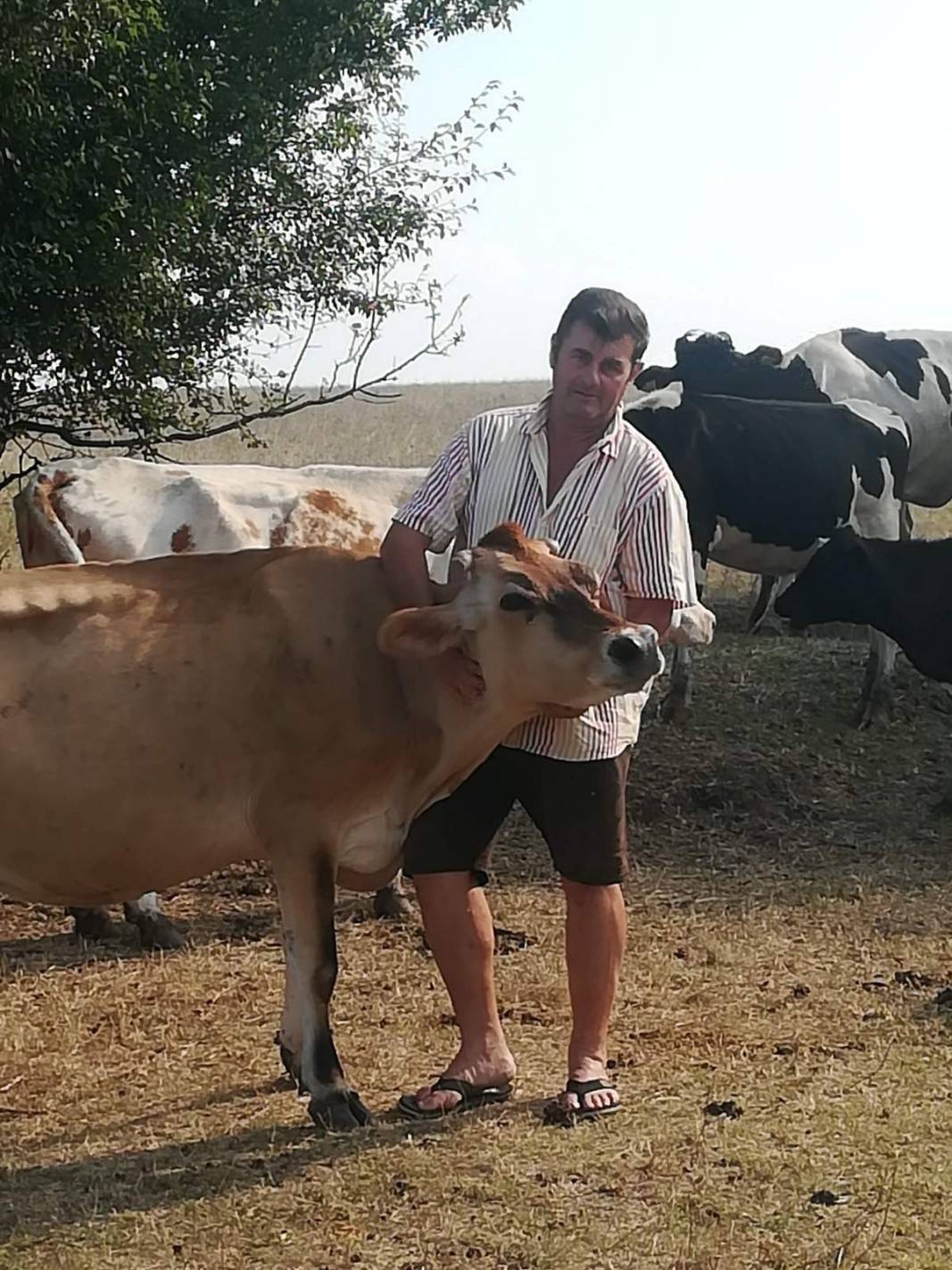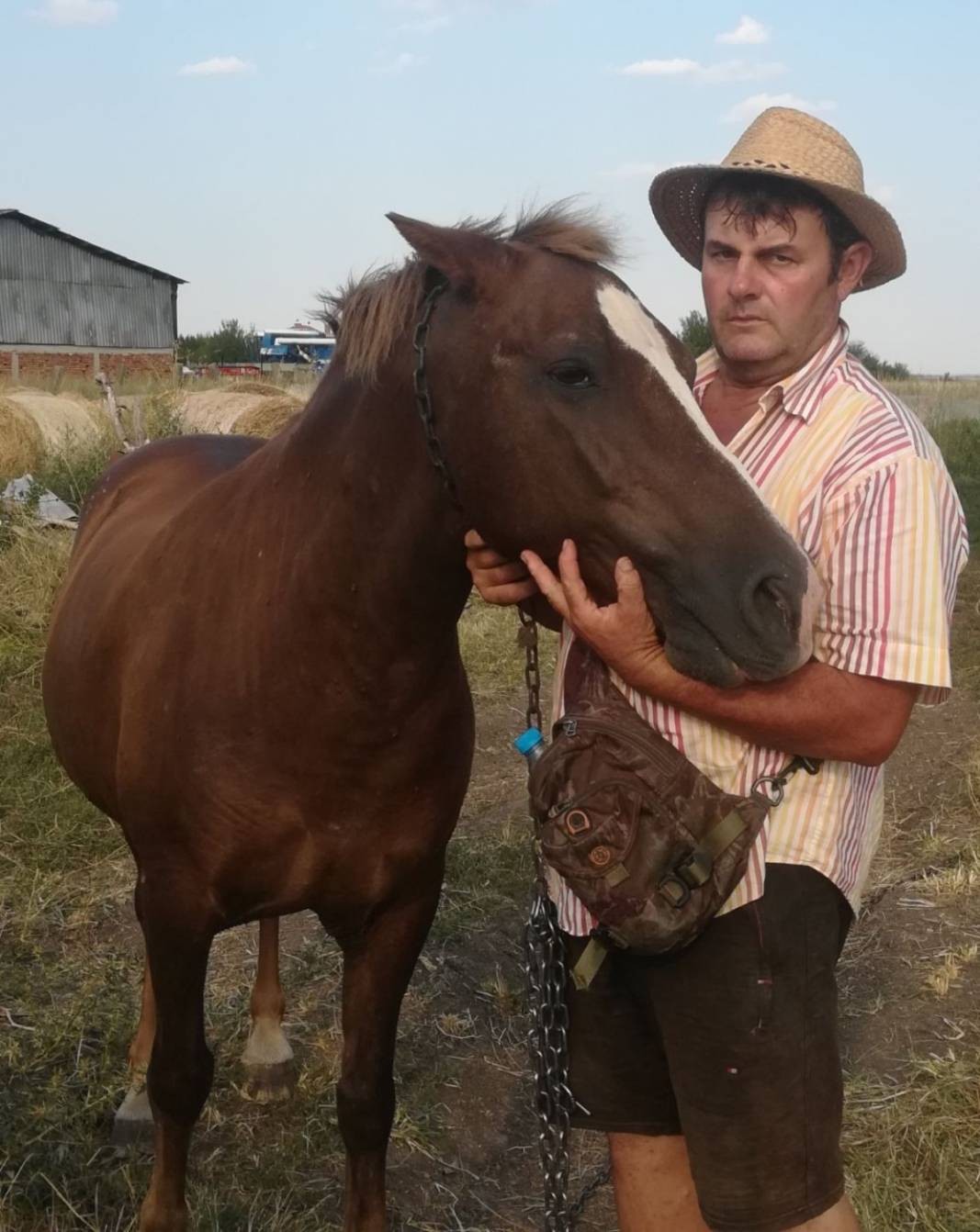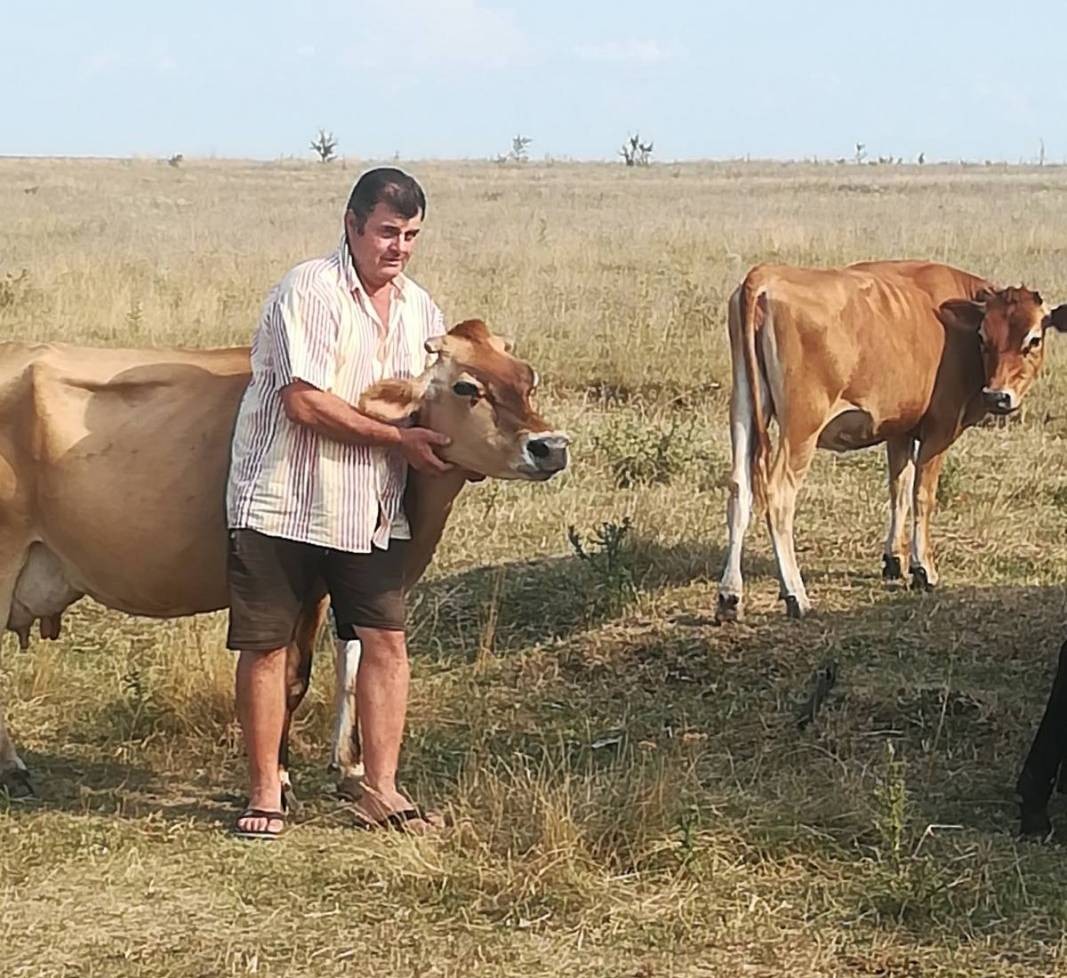Krum Mladenov lives in the village of Slivovik (Northwestern Bulgaria), where he divides his time between his animals and the brass band "Medenyatsite". He has more than 400 cows, sheep and goats. On weekdays, he is engaged in farming, but when a holiday comes around, he leads the brass band, which has deep roots in his home region.
"To make music, you need to be rested and be able to let your soul relax- – says Krum. – In agriculture, however, there's constant pressure and stress which is due to the staff shortage. For example, if you commit to playing at a wedding, you can't say at the last moment, ''Hey, the cowherds have not shown up today''. You have to find the strength to cope on both fronts at any cost. Sometimes I have too much work, but I can't give up either one."

Krum began farming in 1992, after being discharged from the army. This coincided with the dissolution of the agricultural cooperative, from which he received a few animals. Initially, he started a herd of cattle. Then, he raised nearly 300 goats under the "Young Farmer" programme and eventually shifted to sheep farming. Currently, like all farmers, he is finishing up mowing and is baling hay to make sure he has enough feed for the winter season.
''We have our own land – says Krum Mladenov. – Part of the arable land is leased out, because if you do everything, you end up doing nothing - you can't do arable and livestock farming at the same time. Some of the feed is produced in our farm, but we take most of it as rent."
The livestock farmer says that those working in the industry face a number of problems, including a lack of workforce and insufficient municipal pastures and meadows. They are forced to close the production cycle to survive.
"We are trying to process part of our production –Krum Mladenov says in an interview with BNR-Vidin. – We have recently registered for direct sales of fresh milk and will also apply under a regulation allowing us to carry out primary processing of cheese and milk. The problem is the low price - it feels like giving the produce away. The prices are abnormal and I don't see how one can survive over the years."

During the current season, no company in the area is buying sheep milk, adds Krum Mladenov. However, livestock farmers need to prove that they have produced and sold products in order to receive their subsidies at the end of the year. That is why, several herds have already been put up for sale.
''This is not a state policy" – the farmer continues. – We call and they tell us: ''We are waiting for instructions from Sofia''. That doesn’t sound normal, does it? On the one hand, the state claims to have a proper agricultural policy and to care about small producers. On the other hand, however, it pushes us into the gray sector. We are fighting against windmills, but I don’t know how long we can survive’’.
Could EU subsidies be the way out of the difficult situation? Although it sounds tempting, the aid under EU programs is proving to be a thorny road for those involved in livestock farming, says Krum Mladenov.

Compiled by Diana Tsankova (Interview by Yordanka Gerasimova- BNR Vidin)
Published and translated by Kostadin Atanasov
Photos: Private archive1000 participants will take part in the first Burgas Half Marathon, which will take place this Sunday, 24 November. The event will bring together amateurs and professionals of different ages who will compete in three distances - 1 km, 10.5 km and 21 km...
Two graduates of the Bulgarian School "Saints Cyril and Methodius" in Jordan presented their achievements at an event at their school "Hadi al Muhammadi" in Amman. The photo, published on the Bulgarian school's Facebook page , shows third graders..
Radmila Sekerinska from North Macedonia appointed NATO Deputy Secretary General NATO Secretary General Mark Rutte has appointed Radmila Sekerinska from North Macedonia as the next NATO Deputy Secretary General. “I am happy to announce..
On March 30, 2004, the first issue of a Bulgarian newspaper in Great Britain, "BG Ben", was published. The beginning was modest – eight pages in A4 format..
The Bulgarian State Railways (BDZ) is organizing a holiday trip for railway enthusiasts. A Christmas train with a steam locomotive and six..
The village of Zmeyovo near the town of Stara Zagora is celebrating today, December 21, its traditional Festival of Pelin Wine. According to an..

+359 2 9336 661
